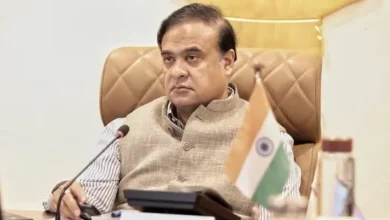AgniKul Cosmos Achieves Historic Milestone with 3D-Printed Rocket Engine Launch

AgniKul Cosmos Achieves Historic Milestone with World’s First 3D Printed Rocket Engine Launch
Desk Report, May 31, 2024: In a groundbreaking achievement, AgniKul Cosmos, a start-up incubated at IIT Madras, launched the world’s first single-piece 3D-printed rocket engine. The successful sub-orbital test-flight of the rocket, named Agnibaan, took place at 7:15 am from Sriharikota on Thursday. This milestone marks a significant advancement in space technology, with Agnibaan becoming the first rocket to feature a semi-cryogenic engine powered by both gas and liquid fuel.
AgniKul Cosmos’s launch not only introduced the world’s first 3D-printed engine but also marked India’s first rocket launch from a private launchpad. The rocket engine utilizes a unique combination of liquid oxygen and kerosene, setting a new benchmark in the industry.
In a statement, AgniKul expressed their pride in the achievement: “We are humbled to announce the successful completion of our first flight – Mission 01 of Agnibaan SOrTeD – from our own and India’s first private launchpad within SDSC-SHAR at Sriharikota. All mission objectives were met, and performance was nominal. This success proves that a private player can design and fly original space tech in India.”
Agnibaan is a two-stage rocket capable of carrying up to 300 kg to an altitude of 700 km. The test flight aimed to validate in-house technologies, gather critical flight data, and ensure system functionality for AgniKul’s orbital launch vehicle. Designed to be fully mobile, Agnibaan can access over ten launch ports, showcasing its versatility.
Key members of AgniKul’s team, including Prof. Satyanarayanan R Chakravarthy, Founding Advisor, and Srinath Ravichandran, CEO, were present during the launch. Prof. Chakravarthy highlighted the significance of the launch, stating, “We are proud to present India’s first semi-cryo rocket engine, which is also the world’s most integrated single-shot 3D-printed piece. This signals our unmatched ability to rapidly assemble rockets.”
ISRO, which assisted AgniKul in the launch, praised the achievement on social media. ISRO Chairman S Somanath lauded the team, saying, “The success of Agnibaan – SOrTeD demonstrates the prowess of indigenous design and innovation. It motivates ISRO to support space startups and foster a vibrant space ecosystem in India.”
The suborbital flight aimed to test the new engine and 3D-printed parts. The duration and altitude of the test were not immediately disclosed. However, the flight confirmed the capability of the SOrTeD vehicle’s avionics to control its propulsion system.
Pawan K Goenka, Chairman of the Indian National Space Promotion and Authorisation Centre (IN-SPACe), hailed the launch as a historic moment. The Indian Space Association (ISpA) echoed this sentiment, emphasizing that the launch boosts global confidence in India’s private space industry.
AgniKul Cosmos, founded in 2017, operates India’s first private launchpad and mission control center. Following this achievement, the company plans to launch an orbital mission by the end of the 2025 fiscal year, with regular flights starting in 2025.
Union Minister Rajeev Chandrasekhar also congratulated AgniKul Cosmos for their historic launch, noting the significance of the world’s first flight with a single-piece 3D-printed rocket engine. This achievement aligns with Prime Minister Narendra Modi’s push for the privatization and commercialization of India’s space sector, opening new opportunities for private enterprises in space technology.
Also read: Mizoram Police Seize Exotic Animals in Maxi Cab; Arrests Made




